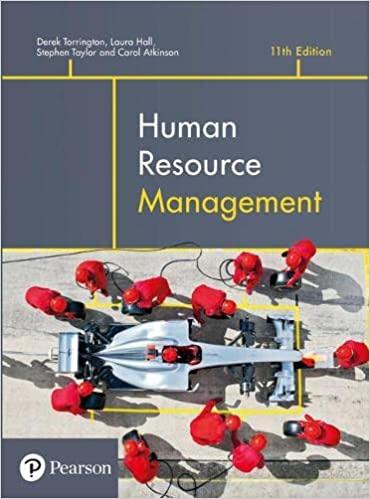Brown reports on a British Safety Council study that warns that employers good intentions could lead to
Question:
Brown reports on a British Safety Council study that warns that employer’s good intentions could lead to ineffective employee well-being initiatives. Despite their enthusiasm, employers are often genuinely ignorant as to what will make a difference to employee health and wellbeing. The study calls for rigorous, evidence-based workplace interventions. Other research by the CIPD has demonstrated that line managers are often ill-equipped to deal with health and well-being matters, despite good leadership and management practices being the foundation of healthy workplaces. Additionally, initiatives are often one off and stand-alone rather than integrated into organisational processes. CIPD recommends that employees should be invited to design health and well-being initiatives, that line managers should be trained in their use and that attention should be paid to job quality. Perhaps unsurprisingly, many organisations do not evaluate their health and well-being initiatives. CIPD also recommends that organisations need to be clear about what they are trying to achieve, and whether they have achieved it, to build a business case for ongoing investment.
Questions
1. To what extent do you agree employers do not understand how to improve health and well-being?
2. What steps can be taken build effective health and well-being initiatives? How effective are these likely to be?
3. Why is it important to build a business case for health and well-being initiatives? What evaluation measures could support these?
Step by Step Answer:

Human Resource Management
ISBN: 9781292261645
11th Edition
Authors: Derek Torrington, Laura Hall, Stephen Taylor, Carol Atkinson





